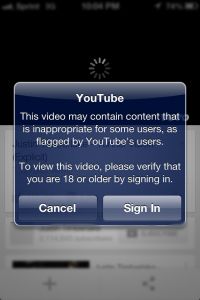
Celebrities nowadays are continually stretching the ambiguities of the line between what constitutes artistic expression and what is considered provocative. Today, the media is filled with music videos using many profanities and provocative actions
Many artists, including Miley Cyrus and Robin Thicke, behave in such an outlandish manner that it can only be described as inappropriate in most cases.
Miley Cyrus is one artist whose behavior I would consider provocative. As a singer who was known for many years as the good girl of Hannah Montana, watching her transition into this raunchy wannabe is quite disturbing.
Another distressing fact is while Miley Cyrus is trying to completely rebrand herself overnight as no longer being this character of Hannah Montana, I would think that there are still many young fans of hers out there. I would be worried if any child still looked to her as a role model.
Videos like “We Can’t Stop” and “Wrecking Ball” do nothing to improve outlooks on Miley Cyrus. “We Can’t Stop” is grossly used in a way of saying that you can do whatever you want. Looking past the words of the song itself, the video is a train-wreck. Cyrus dances in an extremely provocative manner throughout the video by twerking—a move that caused much controversy in her Video Music Awards performance on Aug. 25.
When I see celebrities acting in these ways I can not help but think that the main reason they do it is for attention. I will say though that I believe there are better ways to put yourself out there as an artist other than the provocative course of action that many seem to opt for these days.
Reverting back to the VMA performance that shocked the nation, it brings even more ill-handled events into question. Like how Miley Cyrus, 20 and Robin Thicke, 36 ended up collaborating on the performance and provocatively dancing. Personally, I thought that was a weird and even uncomfortable thing to watch during certain parts of the song when Cyrus and Thicke were a little too “twerk happy.”
Another prevalent topic in the music world today is the use of explicatives and profanity. My point is not to say that certain terms can not be used in a song in an artistic manner but so many songs these days are weighed down with slurs and profanities. Referencing a few other artists, such as Robin Thicke’s “Blurred Lines” and Justin Timberlake’s “Tunnel Vision”, are also examples of the indecency that goes hand-in-hand with so many videos and songs.
One has to wonder why certain artists are drawn not only to inartistically placing profanities into their songs but why they feel the need to plaster it throughout their videos. A perfect example of this is in Robin Thicke’s music video for “Blurred Lines” with the huge writing on the wall that advertises something personal of Robin Thickes’ in a profane, almost sexist manner.
The thing that I was most taken aback by in “Blurred Lines” and “Tunnel Vision” was the blatant disrespect shown by placing people in the videos with almost little to no clothing. Seeing no necessity, artistically or not, in placing those women in the videos like that is something that I just can not wrap my head around as to how or why that was done.
Strikingly, before viewing Justin Timberlake’s video, a message popped up: “This video may contain content that is inappropriate for some users as flagged by YouTube’s users. To view this video, please verify that you are 18 or older by signing in.” If a video is this explicit or provocative, I question the artistic value that the video itself brings to the table. Also, how easy it would be for those kinds of videos to fall into the hands of younger children by the simple action of signing in.
I am sure that some people get more offended at certain things than others. People gauge an artists’ indiscretion off how they perceive their maturity to be based on their age or how that artist is perceived by others as a role model. Of course, people might also unfortunately judge people based off their past experiences or stereotypes. Whatever the case is for being offended, there are many things that go into shaping a person’s reasoning and that is ever-present in current day artists.
Keeping with the idea that bad publicity is still publicity is one of the main reasons why I think artists behave the way that they do. They crave the limelight and most will do whatever it takes to put themselves into those situations, whether it is through good or bad publicity—an endless cycle.


